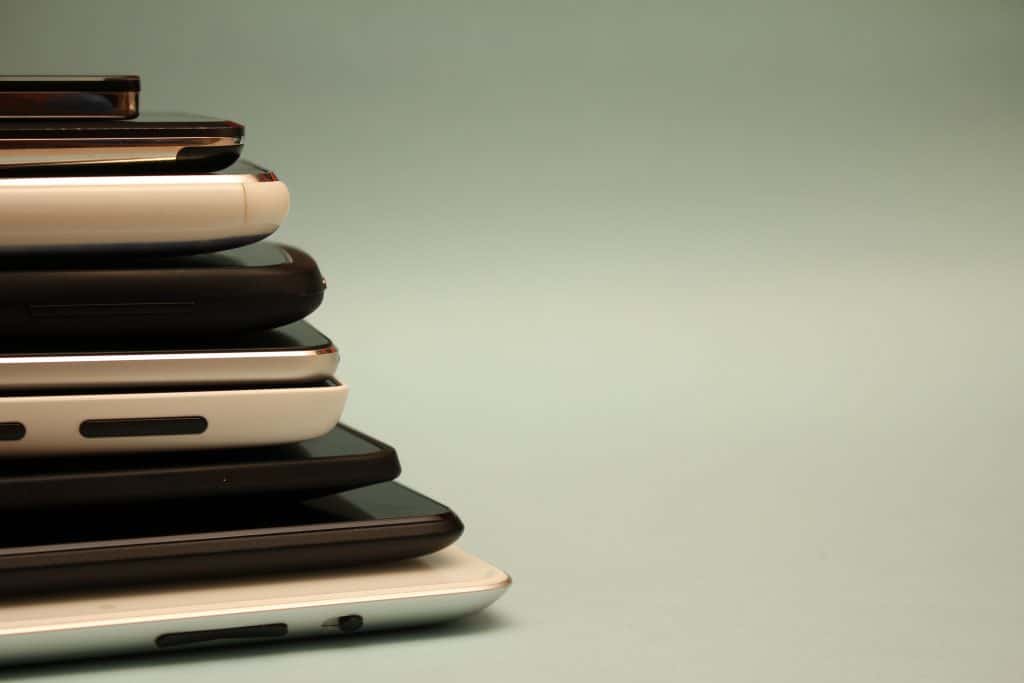Stop staring at your phone.
If you’re out with pals, enjoying a beautiful sunset, or simply musing on life, it can be difficult to resist the urge to post on social media. But while there’s nothing wrong with sharing, there is a dark side: the mindless scroll hole. What impact is this actually having on us and the environment?
For nearly 60 percent of the world’s population, social media use has become part and parcel of everyday life. In the last few years, it has gone beyond a tool for simply catching up with what your family or friends are eating for breakfast, or their new mischievous kitten. It is a platform for entrepreneurship, connection, and for sharing knowledge and information. In fact, in 2019, one survey found that around half of adults in the U.K. get their news from social media.
But social media has also become a time sap. How many times have you picked up your phone when it buzzed with a message, only to find yourself still with your phone in hand, message answered or unanswered, mindlessly scrolling on TikTok, Instagram, or Twitter 15 minutes later? This isn’t a one-off situation for most of us. And it’s not entirely our fault, because all of these apps are addictive by design (see: The Social Dilemma).

But if we spent a little less time on social media each day, it could benefit our mental health and the environment. That’s right. It may not feel like sitting on the couch, phone in hand, is having a negative effect on the planet, but it is. Here’s why it might be time to give the doom-scrolling a break, for the sake of your own mental health, but also for the rest of the world, too.
Social media use and the environment
While energy can come from renewable sources, like wind and solar, most of the world (more than 80 percent) still currently runs on fossil fuels. This means that most things that use a lot of energy inevitably also emit a lot of greenhouse gasses. And social media is one of those things.
According to a study by Greenspector in 2020, just one minute of scrolling your timeline on social media emits roughly the same amount of greenhouse gasses as driving 13 meters in a car. And, according to Compare the Market’s Social Carbon Footprint Calculator, spending two hours on Instagram a day emits around 126 grams of greenhouse gasses, which is around 45,990 grams per year. Instagram has more than 1.2 billion monthly active users, so, to put it simply, that’s a heck of a lot of carbon dioxide entering the atmosphere.

But the worst offender for social media pollution is TikTok, notes Compare the Market. It’s unsurprising: it’s the most popular social media app with Gen-Zers, with around 30 million daily active users on its iOS version. Spending two hours on the app per day results in around 316 grams of carbon dioxide equivalent, which adds up to around 115,194 grams per year, per person.
“Social media is strongly integrated within our daily lives,” Brett Mifsud, Compare the Market’s general manager of energy, said in a statement last year. “What most people don’t realize is the extent of the impact our social media habits are having on the planet. Like every technology, scrolling on social media has an environmental footprint, which is a lot higher than people might think.”
So, is scrolling less actually better for the planet?
Ultimately, it’s down to the world’s biggest companies to make a change rather individuals, both in the energy sector and in social media. And some have been making progress. In 2020, Meta, which owns Instagram, revealed that its global operations were supported by 100 percent renewable energy. But in 2022, ByteDance — the Chinese technology company that owns TikTok — was criticized by Greenpeace East Asia for falling behind on climate commitments.
“ByteDance is not keeping up with its peers in China when it comes to climate commitments and renewable energy use,” Ruiqi Ye, Greenpeace East Asia’s climate and energy project manager, told Data Center Dynamics. They added: “Tech giants like Tencent and GDS have set ambitious targets and are starting to procure renewable energy at scale, but ByteDance has not even disclosed the greenhouse gas emissions from its own operations.”

But this doesn’t necessarily mean we should all purge TikTok from our lives. After all, it is, paradoxically, an extremely important tool for engaging people with the climate crisis and sustainability. The hashtag #climatecrisis alone has more than 790 million views, and #sustainability — which features videos offering advice on things like sustainable travel, shopping, and eating tips — has nearly 4 billion views.
That said, while the tech giants catch up on renewable energy sources, it wouldn’t do us any harm to limit our scrolling. After all, it’s not just good for the planet, but a multitude of research also suggests it’s good for our mental health too. In 2019, one study suggested that the addictive use of social media was a risk factor for anxiety, psychological distress, and depression. And in 2018, another suggested that reducing social media use to 30 minutes could reduce feelings of loneliness and depression.
The answer, perhaps, is to be more intentional. Upload the photos, watch some videos, read a few posts, or stream a live video, but then put down the phone and take in the world around you. And if that’s not possible to do right away, be gentle with yourself. Try to limit yourself to a few minutes less each day, or use an app, like Social Fever or Freedom, to hold you accountable for your screen time. It’s worth doing for the sake of the planet, sure, but your own brain will thank you too.
Related on Ethos:


